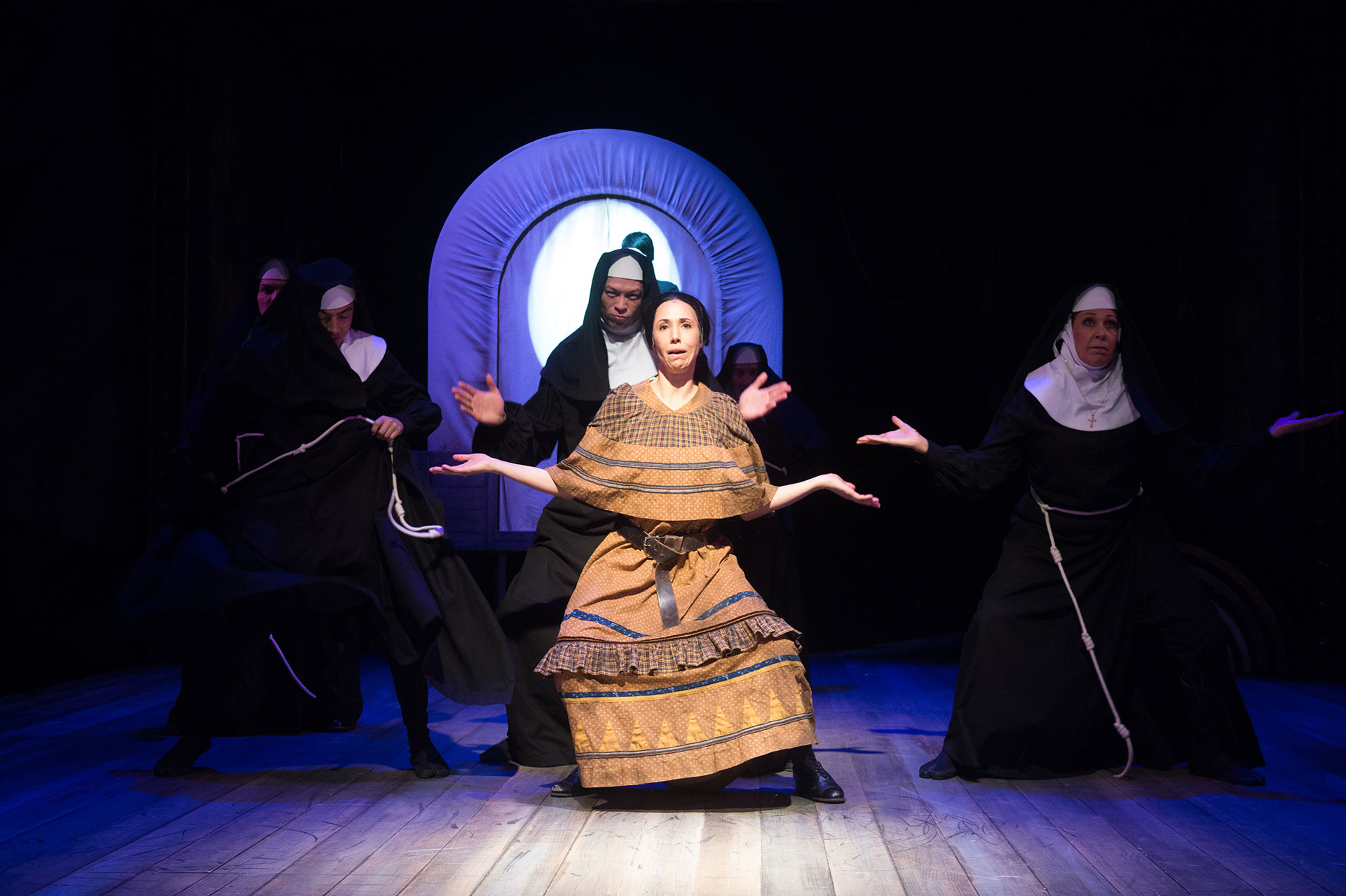 |
| Oregon Shakespeare Festival photo by Jenny Graham |
This year, American Revolutions turns out a play that is "a satiric romp" about the massacre at Wounded Knee, and about the history and treatment of Native Americans by (mostly) white people. It's a bit uneven, still a work in progress, but there is a lot to think about here and it is generally presented in a fun way.
The Play
This is a non-traditional play, to put it mildly. In many ways it works more like a series of comic sketches, though it does have a vague through line that could be construed as a plot. But it's clear from the opening, as our narrator rises through the trap door in the stage, losing his costume as he does, that there will be a running theme of low humor and cheap gags. But the play is written by a sketch comedy group called the 1491s, so none of this is really surprising.For a while it's unclear where any of this is going to go. Are we really just going to have gags? But it does settle down a bit and we start to see a kind of story, told through the history of one family, that takes us through the lowlights of Indian history. A good example is when a game show suddenly breaks out, and we're on "Wheel of Indian Massacres," where they spin a wheel to choose the name of a massacre to discuss. It soon becomes clear that few in the audience are familiar with most of them, and we have one of our themes for the show: the disappearance of much of Native American history from most American discourse.
The narrative goes through the scandals of reservations, Indian schools, relocations, and military service. Although the subject matter is unceasingly bleak, the humor and gags help move it along and make it possible to address the issues with some context and perspective.
Truly, in spite of the laughs, most of the subject matter isn't very pleasant, but it all culminates in a deus-ex-machina happy ending that serves to underscore how dismal most of the outcomes have really always been. And though much of the material is meaningfully accurate, they quip at one point that they strive hard to be as accurate as a 1970s children's history book.
The Production
As a world premiere, this show displays some of the rough edges that one might expect. It's definitely an uneven ride, but the level of production support from OSF makes up for a lot. It's a very talented cast, blending members of the 1491s with experienced OSF actors and designers, so the production quality is higher than you'd normally see in such a production.Director Eric Ting keeps the story on track for the most part, though some of the scenes are clearly a bit longer and slower than optimal. But on the whole the result is pleasing, and our group found ourselves discussing the play and some of the issues it raised all through dinner and the rest of the evening. So there is definitely substance lurking amidst the jokes.
Bottom Line
I found myself unsure, even up through the intermission, how I felt about the whole experience. I considered myself fairly aware of most of the issues presented in the play, but uncertain whether the gag-oriented presentation was really an appropriate venue for the discussion. Ultimately I concluded that I liked it (not loved it). This isn't the first time OSF's American Revolutions has gone down this path. The first of the commissions that ended up on their stage was American Night: The Ballad of Juan Jose by Richard Montoya and Culture Clash. Much like other works by Culture Clash I've seen, the use of irreverent and self-deprecating humor serves to advance the understanding of difficult cultural conflicts.Ultimately I'd say this effort by the 1491s isn't as successful as the pieces I've seen from Culture Clash, but it does go a long way to making a palatable presentation that enables them to sneak important and difficult ideas into the discussion. So again, while I didn't love it, I think the piece works and is worth seeing. It runs through the end of October.
No comments:
Post a Comment